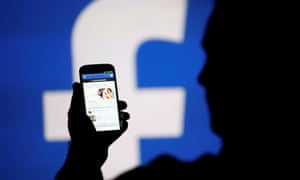The Observer’s discovery that a secretive firm apparently bankrolled by a right-wing billionaire was at work in the Brexit referendum to sway voters selected on the basis of their Facebook profiles highlights the way in which the erosion of privacy can lead to an erosion of democracy – and will inevitably do so without firm, clear, principled action by governments and courts.
 The same firm, Cambridge Analytica, has also been credited with helping the Trump campaign in a similar way, although this is disputed by some observers. Even if we can’t know how effective such campaigns have been, they will spread so long as any political organisation suspects that its opponents might gain an advantage from them.
The same firm, Cambridge Analytica, has also been credited with helping the Trump campaign in a similar way, although this is disputed by some observers. Even if we can’t know how effective such campaigns have been, they will spread so long as any political organisation suspects that its opponents might gain an advantage from them.
Willie Sutton, the American bank robber, explained that he robbed banks “because that’s where the money is”, and political campaigns are certainly going to use Facebook because that’s where the voters are. Unlike other social media, where you tweet to the converted, Facebook is well adapted to changing people’s minds: that is the basis of its stupendous valuation as an advertising channel. We have seen this with the phenomenon of “fake news”, but that is more or less public. Micro-targeted ad campaigns are by their nature private or narrow cast. They never reach outside their target audience.
There are two kinds of privacy under threat in the emerging economy, where everyone is almost always connected to the internet, and has their lives enmeshed in big data. The first privacy is the kind that we intuitively understand even if it is difficult to define objectively because, like modesty and shame, it is dependent on culture and context.
The ability to exploit the vulnerabilities that this data reveals should be controlled just as tightly as we try to control our security services. Democracy demands no less.
No comments:
Post a Comment